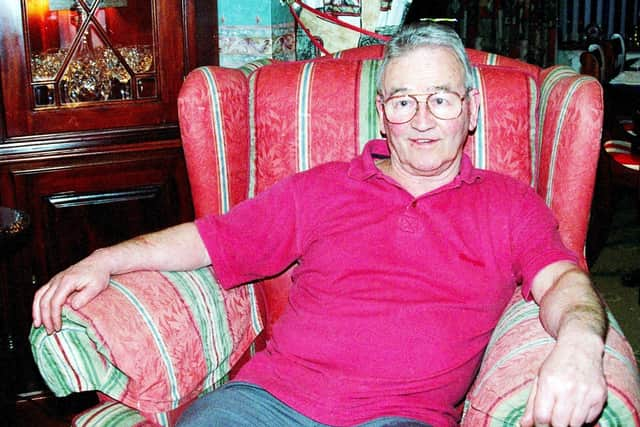Man shot on Bloody Sunday assaulted and abused by soldiers, court told
and live on Freeview channel 276
Counsel for Patsy O’Donnell’s family claimed he was left terrified by British soldiers calling him a “Fenian b******” and inflicting further injuries after he was wrongly arrested during events in Derry on January 30, 1972.
The father-of-six, who died in 2006, also endured years of British Army harassment due to an association with the massacre he carried as a life-long burden, it was contended.
Advertisement
Hide AdAdvertisement
Hide AdRelatives of the father-of-six are suing the British Ministry of Defence (MoD) for the damages in connection with Bloody Sunday.


Thirteen unarmed people were killed and several others wounded when members of the Parachute Regiment opened fire on a civil rights march in the city. A fourteenth man died later.
In 2010, the Saville Inquiry into the shootings established the innocence of all of the victims.
Those findings led to David Cameron, the British Prime Minister at the time, issuing a public apology for the soldiers’ actions.
Advertisement
Hide AdAdvertisement
Hide AdHe described the killings as “unjustified and unjustifiable”.
With liability accepted in legal actions taken against the MoD by those bereaved or injured, proceedings centre on the level of pay-outs to be made.
Mr O’Donnell, then aged 40, was shot as he tried to take cover from the gunfire at Glenfada Park North.
Opening his family’s claim, Karen Quinlivan QC said he had been arrested with other civilians and made to stand against a wall, where he struggled to assume a search position due to his injuries.
Advertisement
Hide AdAdvertisement
Hide Ad“Patsy alleged soldiers were shouting abuse, poking him in the back and calling him a Fenian b******,” Mr Quinlivan submitted.
She contended that one paratrooper threatened: “You have a bullet in you and, when we get you down to the barracks, you’ll have another one in you. You mark my words.”
The same soldier allegedly told his colleagues: “Chaps, there will be blood flowing tonight.”
When Mr O’Donnell was released and made his way to a taxi depot on William Street, the court heard that another soldier pulled him back outside and struck him on the head with a baton – inflicting lacerations that required up to eight stitches.
Advertisement
Hide AdAdvertisement
Hide AdFollowing his release from hospital, he was unable to cope with his previous job but later established his own roofing business, working there until retirement in 2004.
It was claimed that the Army frequently stopped him and raided his home following Bloody Sunday.
His work as a roofing contractor was also allegedly frustrated by being detained during trips across the border into Co Donegal.
“Patsy O’Donnell regarded his identification with Bloody Sunday as a life-long burden,” Ms Quinlivan said.
Advertisement
Hide AdAdvertisement
Hide AdIn a statement to the Saville Inquiry before he died at the age of 74, Mr O’Donnell expressed bitterness over what happened to him, and that some may have wrongly classed him as a gunman.
“I am not and have never been involved in that sort of thing. I hope that this Inquiry will get to the truth,” he said at the time.
But, unlike some other victims, Mr O’Donnell died before he could experience the vindication of the tribunal’s findings.
“His sense of grievance was essentially life-long,” counsel submitted.
Advertisement
Hide AdAdvertisement
Hide AdThe action involves claims for aggravated damages, false imprisonment and a disputed harassment allegation.
Mrs Quinlivan argued: “It is difficult to envisage more outrageous misconduct than to have an Army, which is entrusted to protect citizens, be responsible instead for: shooting an entirely innocent man in a public place without a shred of justification; arresting an obviously injured man and, instead of securing medical treatment, delaying his access to medical treatment; and assaulting him because he was unable to comply with instructions because of his injury.”
The case continues.